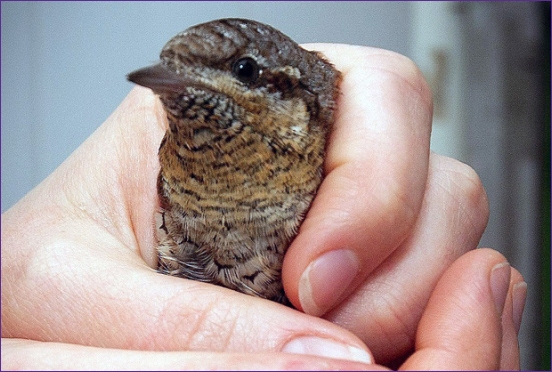An ‘incredibly rare’ bird has died after migrating 3,000 miles from Africa to Burnham-On-Sea only to be mauled by a pet cat.
The starving Wryneck was foraging for ants to eat in a garden when the cat pounced.
It was rushed to an animal rescue centre by the cat’s owner and shocked staff worked around the clock to nurse it back to health.
But despite their best efforts – which included travelling miles to dig up ant nests – the rare summer visitor from sub-Saharan Africa succumbed to its injuries five days later.
Debbie O’Keefe, from Secret World Wildlife Rescue in East Huntspill, told Burnham-On-Sea.com: “He had a few puncture wounds and was assessed by a vet.”
“Nothing was broken but he didn’t seem to want to fly and never really recovered. We tried to put him outside in an aviary and see if he would move around a bit, but he didn’t.”
“We brought him back inside into an incubator, but unfortunately the next day he died. It’s a real shame, but we tried our best. It’s really sad because they are so rare on these shores.”
The bird was brought to the rescue centre at East Huntspill after the cat’s owner found it in Burnham-On-Sea last Thursday.
With only 280 pairs migrating across the South West to Europe every year staff were reluctant to keep the bird too long.
They quickly gathered ants for it to feed on, and although it ate, when they put it into the outdoor aviary it remained on the ground, unable to fly. Staff later took it into an incubator where it sadly died on Tuesday.
Debbie added: “I have worked here for 20 years and I have never seen one of these birds in the whole time, they are very rare. They are birds that migrate that come down on to the ground to forage on ants, that is how the cat came to have it.”
“They are incredibly difficult to see, they do a really impressive snake-like movement of their head to make predators think they’re dangerous, I don’t think it fooled the cat though.”
The Wryneck is a regular autumn migrant in small numbers to sites in eastern and southern Britain.
A few are seen each spring and it is occasionally spotted in gardens during August and September. They get their English name from their ability to turn their heads almost 180 degrees.
When disturbed at their nest, they use their snake-like head twisting and hissing as a threat display.







